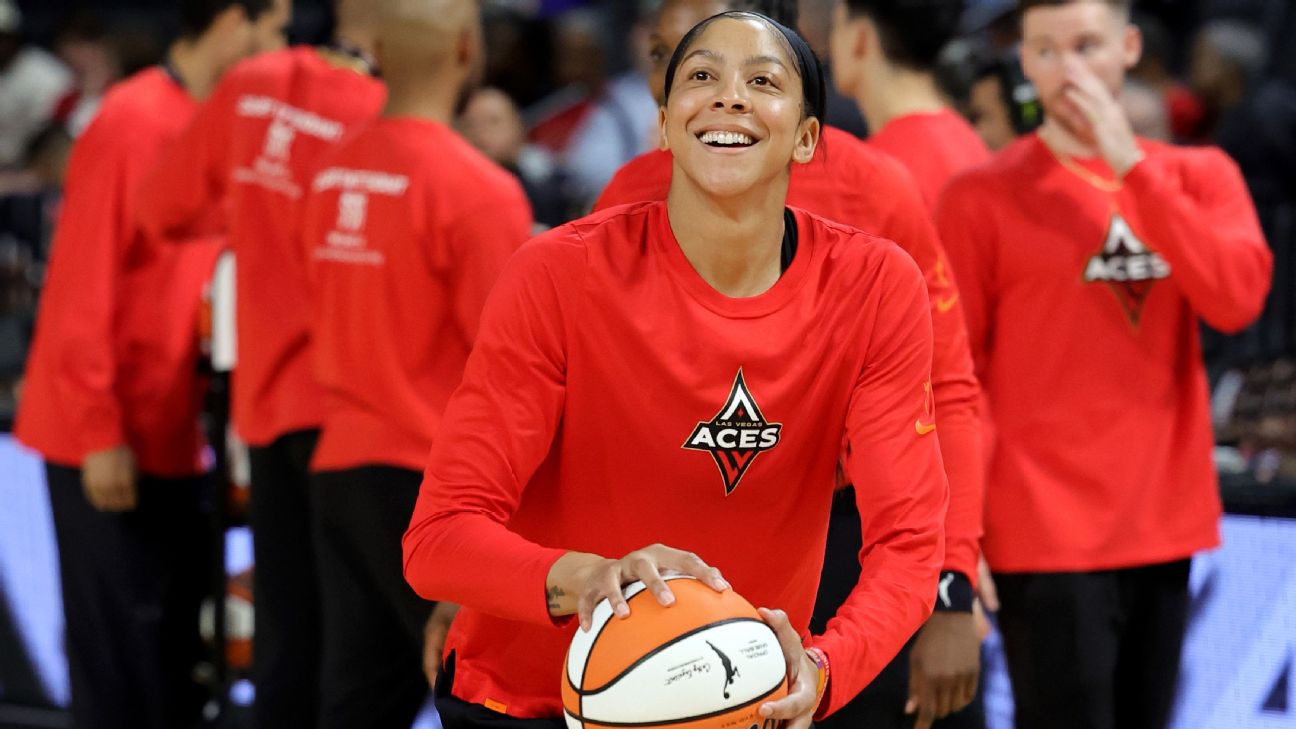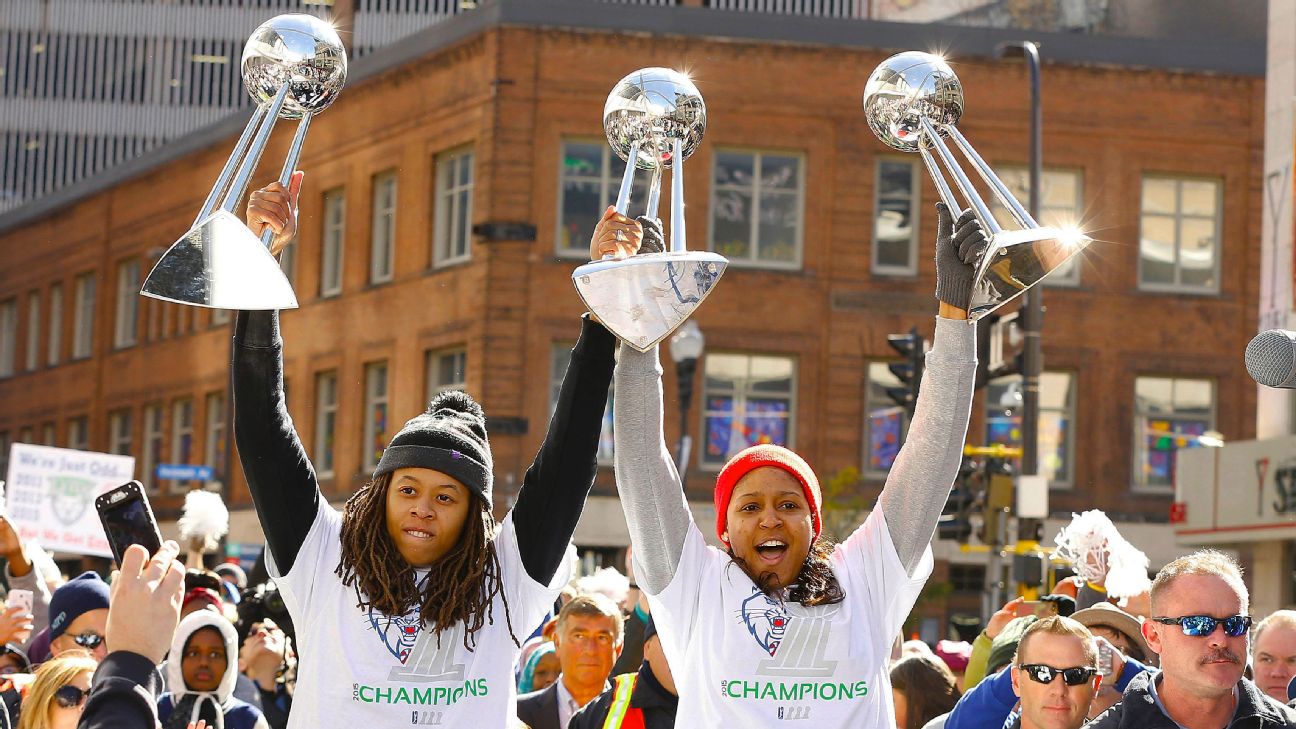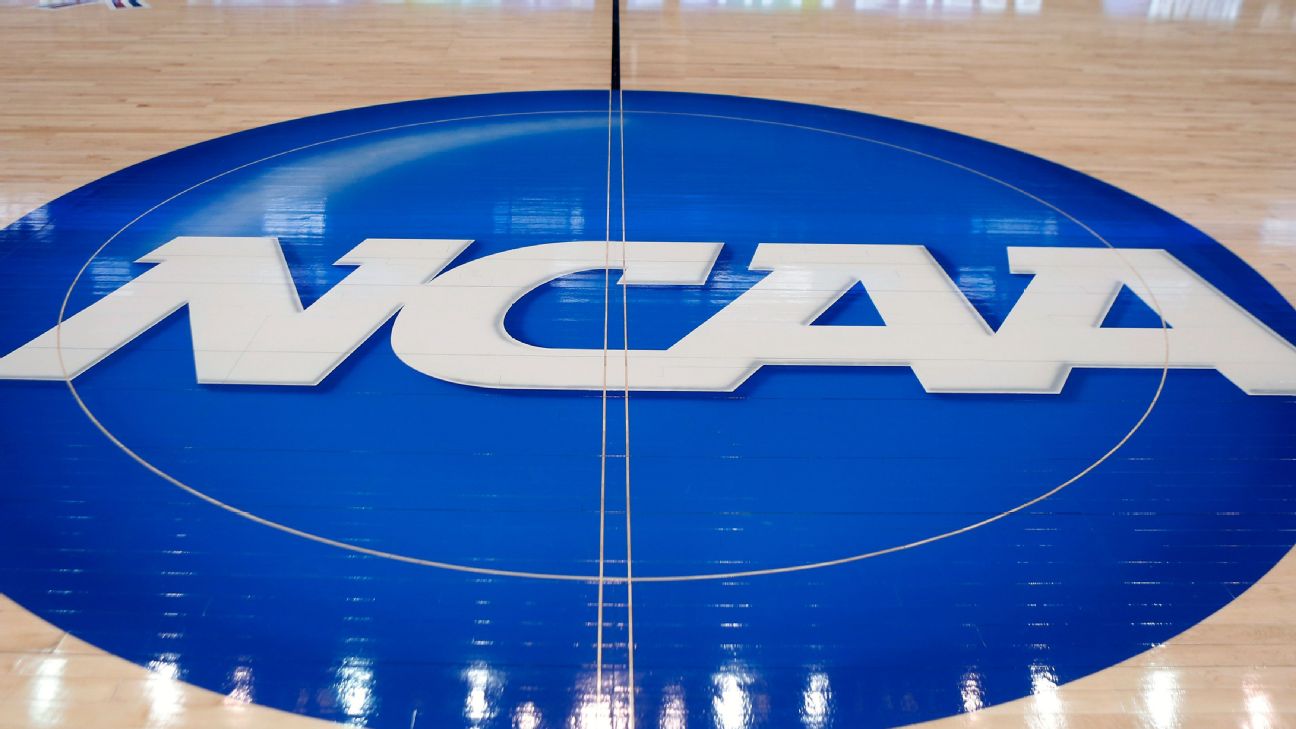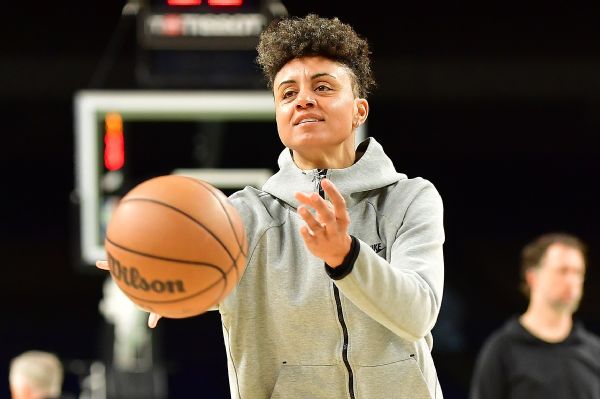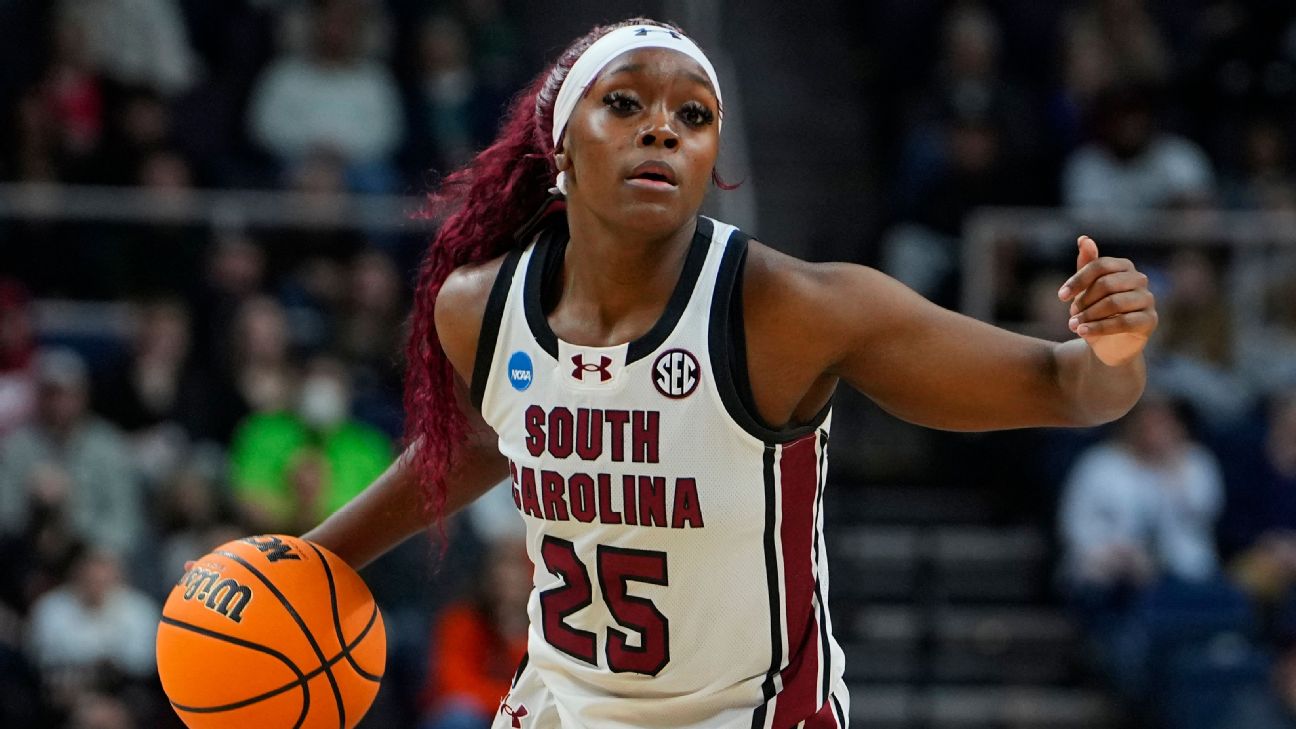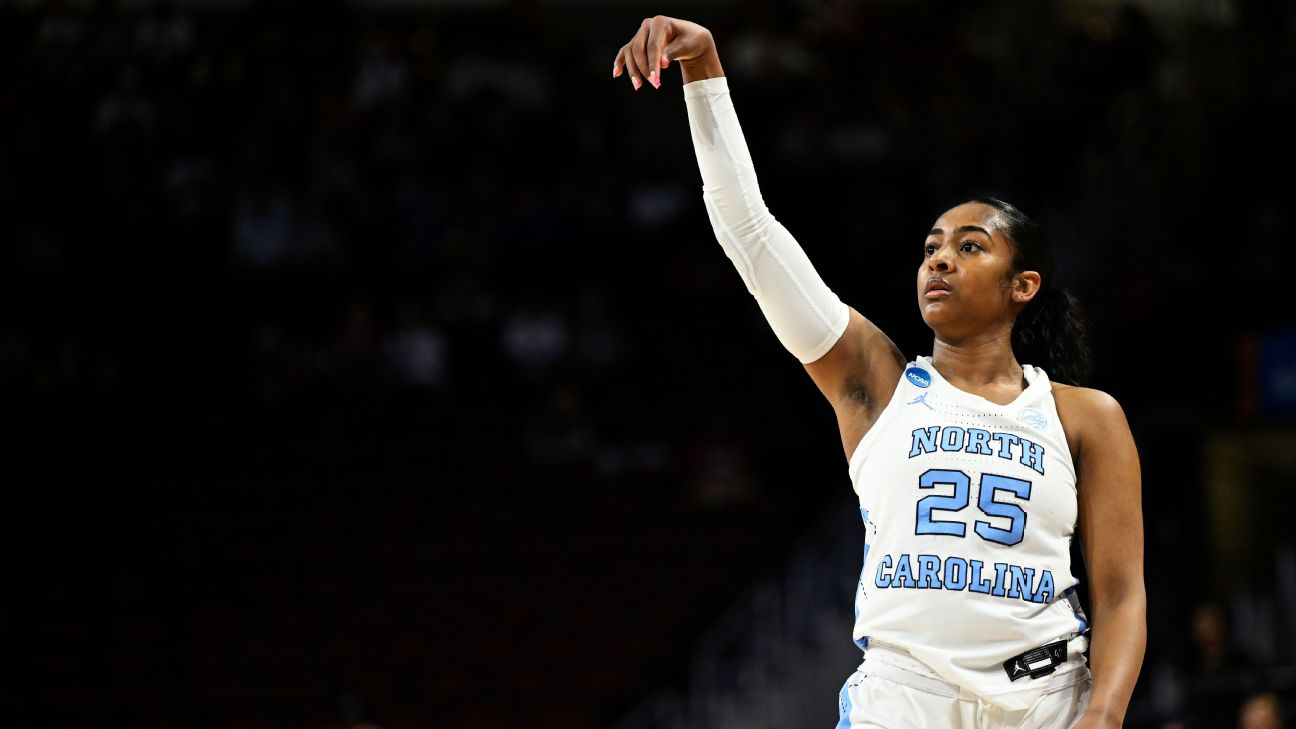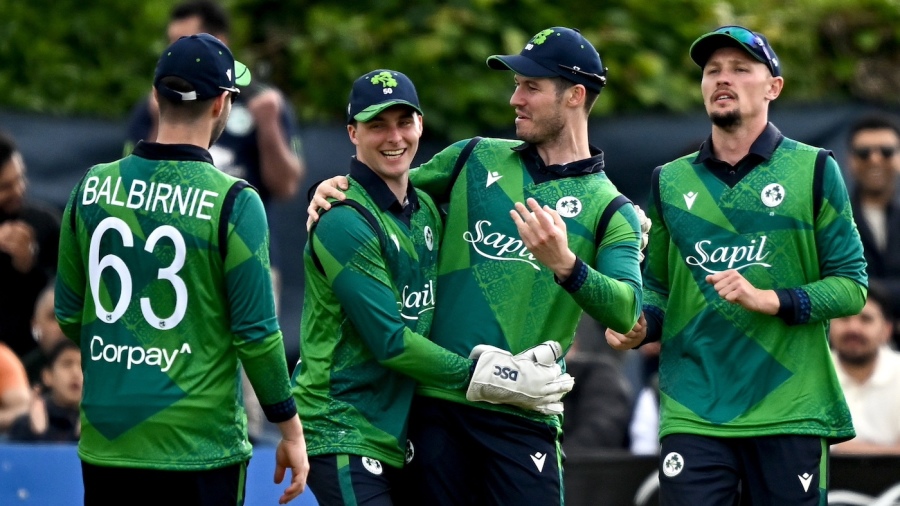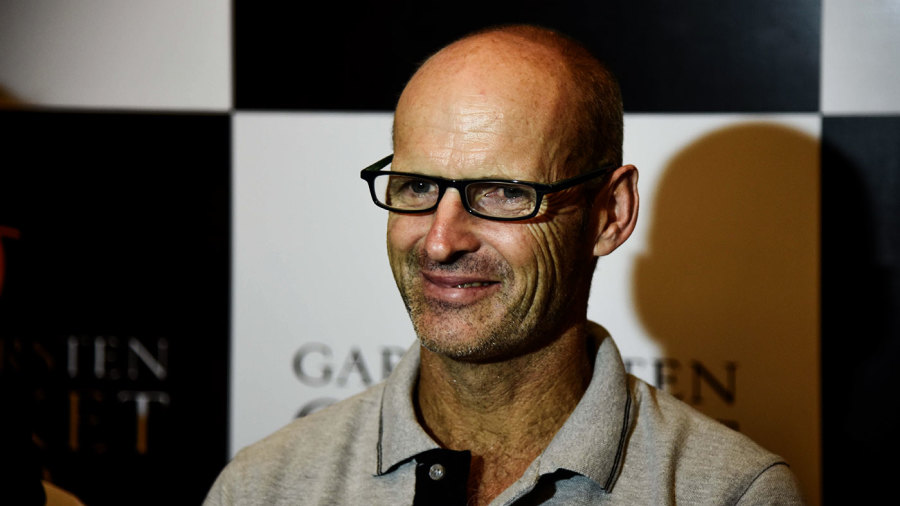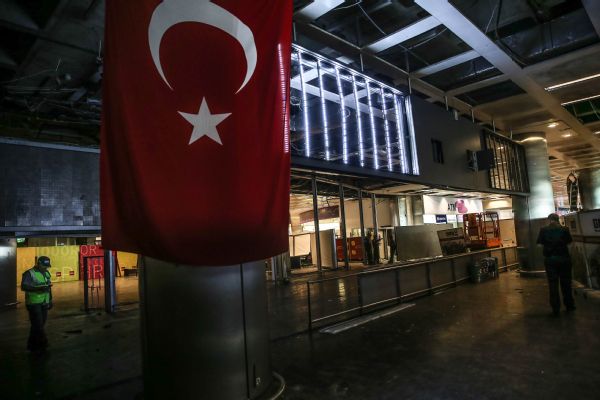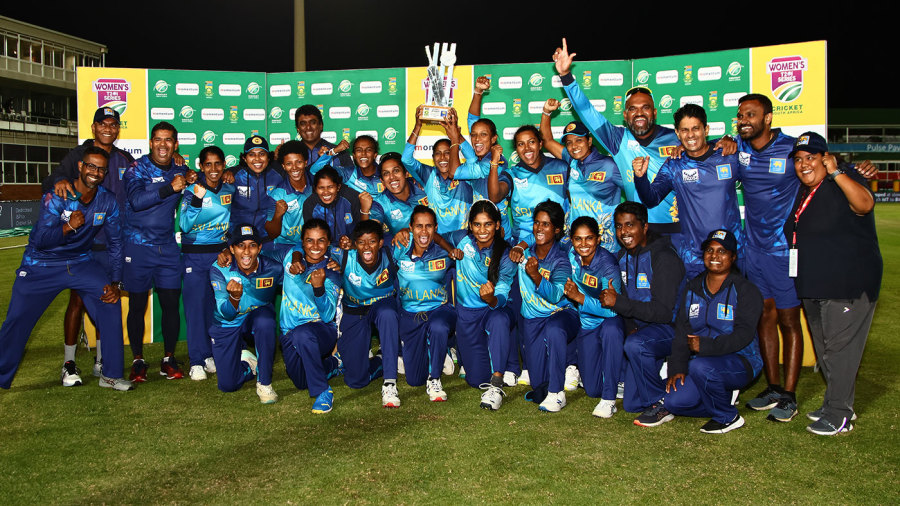![Manchester City woe v real madrid [1296x729]](https://a.espncdn.com/photo/2024/0430/r1326523_1296x729_16-9.jpg)
2024 college softball How to watch the NCAA tournament and WCWS on ESPN
A knockout competition can produce delightfully confusing results. Kentucky can lose to Saint Peter's and Oakland. The New York Giants can beat the New England Patriots (twice). Morocco can beat Spain and Portugal back-to-back, while the Premier League -- by far the richest league in soccer -- can flame out of UEFA competitions.
The quarterfinal round of Champions League and Europa League matches erased loads of English hopes and storylines. Manchester City's prospects of a "Double Treble" disappeared with Antonio Rüdiger's deciding spot kick and a second knockout loss to Real Madrid in three years. Liverpool's hopes of sending Jurgen Klopp into retirement with their own unique treble -- League Cup, Europa League, Premier League -- came to an end when a comeback attempt at Atalanta quickly fizzled.
Arsenal's ongoing rebirth continues overall, but hopes of a first Champions League semifinal in 15 years fell apart in the same place a lot of its 21st century Champions League hopes have died: Munich. With West Ham also falling to Bayer Leverkusen, only Aston Villa's comeback win over Lille in the Europa Conference League, aided by a funky goal late in regulation, kept England in any competition.
Meanwhile, Barcelona lost both their lead and composure against PSG, Germany's two biggest clubs are in the Champions League semifinals for the first time in 11 years, and Bayer Leverkusen, which took eight points in four matches from those two heavyweights this season, remain incapable of losing in the Europa League.
Despite the randomness of these competitions, we always rush to the narrative machine immediately in the aftermath of interesting results. The Premier League is drastically overrated! The Bundesliga is underrated! PSG's plan was on course all along! With a few days to reflect on what we saw, let's talk about what we did, and didn't, actually learn from these incredible quarterfinal rounds.
Money matters, but so does everything elseIt should probably go without saying, but just in case: Despite quarterfinal flameouts, the Premier League is still comfortably the best league in Europe (and, therefore, the world). It has the most money, the most depth, the most roster value, et cetera. Before this season, it had provided seven finalists in the last six Champions Leagues. And according to UEFA's most recent benchmarking report, 20 Premier League clubs rake in about as much combined revenue as all 38 clubs in LaLiga and the Bundesliga and all 642 clubs in Europe's bottom 50 countries.
It was almost comforting, however, to see that a league's financial heft alone doesn't get the job done. Over the past two seasons, the Premier League hasn't turned depth into massive European success. Sure, Manchester City (Champions League) and West Ham (Europa Conference League) both won their respective competitions last spring, but they were the only two English teams to reach even the semifinals, and Chelsea (Champions League) and Manchester United (Europa League) were the only others to reach even a quarterfinal. This season, only two English teams even reached the Champions League knockout rounds -- Newcastle and Manchester United both finished last in their respective groups -- and both fell in the quarters.
For as much as the Premier League has distanced itself from the field in a financial sense, it hasn't distanced itself enough to overcome the "Stuff Happens principle" of knockout tournaments. Arsenal's Mikel Arteta got outschemed by Bayern's Thomas Tuchel, just as Liverpool's Jurgen Klopp did against Atalanta's Gian Piero Gasperini. (I know Liverpool isn't going to hire the 66-year-old to replace Klopp, but damn, is that a pretty sexy thought all the same.)
City, meanwhile, seemingly outplayed Real Madrid over two legs, attempting 45 shots to the Blancos' 22 and generating 3.5 xG while allowing just 2.1. But they couldn't generate many high-quality opportunities and couldn't overcome Real Madrid's timely brilliance and a penalty shootout.
The Champions League quarterfinal results also weren't a victory for European parity. The Premier League might be the richest league, but this year's semifinalists still ranked first (Real Madrid), fourth (PSG), sixth (Bayern) and 12th (Borussia Dortmund) in overall revenue in 2023; in fact, in terms of raw revenue, PSG beating Barcelona (third in revenue) was the only quarterfinal "upset," and it wasn't much of one.
Still, the richest league didn't produce the richest results, and it caused a massive flip in the coefficients race. In next year's newly expanded Champions League, two bids will go to the countries that had the most overall success in the three UEFA competitions. Italy has secured one of those bids thanks to great runs in the Europa League (where it had three quarterfinalists and two semifinalists) and Europa Conference League (where Fiorentina is in the semis for the second straight year), and after the respective UEFA rounds of 16, Opta's power ratings gave England an 82% chance of snagging the other one.
After the quarterfinals, those odds are now at 1%, with Germany at 99% -- that's how unexpected the results were. If Villa win both legs of the Europa Conference League semifinals against Olympiacos and go on to win the title while all of Germany's remaining entries not only lose in the semifinals but either win no more than one leg or draw no more than two, the race could flip back toward the Premier League. You never know: stuff happens. But the odds are long. It appears the world's richest league won't have the most spots in the Champions League next year.
Real Madrid wins with quality over quantity (again)Two years ago, Real Madrid won the Champions League final over Liverpool despite getting outshot by a 24-4 margin. But while it definitely feels like Real Madrid is always on the right side of fortune in the Champions League, it wasn't all luck. While they were massively outshot, they also created the match's best shots, and it ended up making the difference. As I wrote at the time, "In soccer, a single, high-value scoring chance can make an outsized difference, especially in a knockout game in which talent levels are even and stakes are high. Over a long period of time, the tiny xG figures begin to add up and tell a story, but on a short-term basis, the big chances matter the most."
With that in mind, let's peel back the layers of the onion on last week's one-sided 1-1 draw between Madrid and City.
Shots: Manchester City 33, Real Madrid 8.
That's pretty lopsided.
Shots worth at least 0.3 xG: Real Madrid 3, Manchester City 1.
A-ha!
(Source: TruMedia)
Of City's 33 shot attempts, only 10 came within 10 meters of the goal, and 24 were worth 0.08 xG or lower. Real Madrid kept bodies behind the ball, gave away almost no high-quality looks and dared City to do something great to beat them. City did just that in the second leg of last year's semifinal -- a brilliant 4-0 win over the Blancos -- and in the first leg of the quarterfinal in Madrid. They attempted 12 shots in that leg, and 10 were worth 0.08 xG or less. But they scored on a mischievous 28-meter free kick by Bernardo Silva (xG: 0.03) and absolute comets from Phil Foden (20 meters, 0.06 xG) and Josko Gvardiol (23 meters, 0.03 xG). Those are three goals from shots that would, on average, produce about 0.1 goals.
Unfortunately for City, Real Madrid matched that technical brilliance with goals from Rodrygo and Fede Valverde, and they got an early own goal from Rúben Dias as well. That meant that City would have to come up with more incredible strikes in the second leg ... and they couldn't do it.
Even if you're Real Madrid, you're playing with fire when you attempt to win with fewer shots and a far lower xG total. But the superpower for Carlo Ancelotti's squad is that it can turn any big match into a battle of brilliant moments. That's a battle Real Madrid can, and usually does, win.
PSG is winning without (much from) MbappéA quick statistical glance makes it seem like PSG's first Champions League quarterfinal win since 2020 was driven by its biggest name.
Combined expected goals and expected assists (xG+xA) for PSG vs. Barcelona:
Kylian Mbappé: 2.16 Ousmane Dembélé: 0.90 Vitinha: 0.76 Fabián Ruiz: 0.69 Bradley Barcola: 0.58 Everyone else: 0.20 or lowerEven the most hardcore stat-head will admit, however, that stats can lie to you sometimes.
For starters, Mbappé wasn't much of a presence when it came to building attacks: His 0.27 expected assists (which calculates the value of completed passes) ranked fifth on the team behind two midfielders (Vitinha and Ruiz) and two wingers (Barcola and Dembele), and Barcola generated more despite playing only 122 of 180 minutes.
Beyond that, (a) 42% of Mbappé's xG total came on a goal from a penalty drawn by Dembele, and (b) another 37% of that total came in two touches in seven seconds. The first touch was a contested shot attempt when he had Randal Kolo Muani running free to his left. The second came after a Barca clearance went off of a Barca backside.
To be sure, Mbappé's penalty was confidently taken and backside or no, he swiped that second chance into the net with vigor. But by Mbappé's standards, it was not the most impressive, commanding brace in the world. And without basically three touches, his xG+xA total drops from 2.16 to 0.67, fourth on the team.
To be clear, this isn't an attempt to denigrate Mbappé's efforts. Even when he's not touching the ball much, he's impacting everything about how an opponent attempts to combat PSG. At the same time, it was easy to forget he was on the pitch for large portions of the 180 minutes of the quarterfinals, and it was hard not to notice how much more of an overall impact teammates like Dembele, Vitinha, Ruiz and Barcola had.
This is important considering PSG's likely Mbappé-less future. He is expected (again) to leave for Real Madrid after the season, and with the Ligue 1 title wrapped up, this Champions League run is seen as probably his final contribution to the club. But we saw the fruits of PSG's recent roster building coming together nicely against Barca.
Of the 17 players who saw the pitch in the two legs against Barcelona, only five were a part of PSG two years ago. Vitinha (24 years old), midfielder Fabian Ruiz (28) and fullback/chaos agent Nuno Mendes (21) were acquired in Summer 2022. Attackers Dembele (26), Barcola (21), Kolo Muani (25) and Goncalo Ramos (22), midfielders Marco Asensio (28), Lee Kang-in (23) and Manuel Ugarte (23) and veteran defender Lucas Hernández (28) were all acquired last summer, and defender Beraldo (20) was acquired in January.
For all of the justifiable criticism PSG have received through the years for loading up on veterans and failing to take advantage of their massive amount of young talent, manager Luis Enrique has begun to fully take advantage of said young stars. Defender Danilo Pereira (32) is the only 30-and-older player to have played more than 400 minutes in all competitions this year, while 11 players aged 25 and under have played at least 1,500 minutes. (That list of 11 doesn't even include Mendes, who didn't make his season debut until February because of injury.)
This being PSG, we can expect some sort of exorbitant spending following Mbappé's departure; it could include obnoxiously large swings for players like Barcelona's injured Gavi or Napoli's Victor Osimhen. But they've spread the spending out nicely over the past couple of years, and they have a deep and increasingly well-balanced squad because of it.
Thomas Tuchel would make an incredible West Ham managerThe Tuchel legacy at Bayern Munich is going to be a strange one, especially if they end up winning the Champions League. Tuchel has proven his tactical nous over and over: he led Borussia Dortmund to their best post-Klopp Bundesliga point total in 2015-16, took PSG to their only Champions League final in 2020, and, despite being in the job barely four months, upset Manchester City to win the Champions League with Chelsea in 2021. He can scheme up a plan with the best of them. But he also inevitably begins to clash with club higher-ups, and he has seemingly spent most of his time at Bayern pining for the club to overpay for countless Premier League veterans, from Declan Rice to Harry Kane, and from Scott McTominay to João Palhinha.
While Bayern is on pace for a better point total than they had last season when they won the league, a lot of that has to be ascribed to the acquisition of Kane, and Tuchel will forever have been the coach when the club's 11-year Bundesliga title streak ended. And at 2.18 points per game in league play, he's currently tied with Niko Kovac for the honor of "least successful Bayern coach since Louis van Gaal." Tuchel and Bayern have already agreed to part ways at the end of the season, and the results since the announcement have been no less scattershot than the ones before.
Yet none of that stopped Tuchel from coaching circles around Mikel Arteta in last week's Champions League quarterfinal. Bayern gave Arsenal all the possession they wanted over 180 minutes, assured that the Gunners could do little to nothing with it and used wonderful transitions to create most of the tie's most dangerous chances.
Possession rate: Arsenal 54%, Bayern 46% Touches in the attacking third: Arsenal 371 (66%), Bayern 195 (34%) Shots: Bayern 23, Arsenal 21 Total xG: Bayern 3.2, Arsenal 1.4 Goals: Bayern 3, Arsenal 2Arsenal tilted the field well, but got nothing from it. Then Bayern took the lead in the 63rd minute of the second leg, and held Arsenal to a single shot attempt thereafter.
Arsenal spent far more time in Bayern's half but got very little from it. (Source: TruMedia.)
Tuchel will inevitably land another job with another big club in the coming weeks, months or years, and big, rich clubs tend to have enough talent that they end up dominating the ball whether they intend to or not. But Bayern's best moments have come without the ball in 2023-24.
Bayern with a possession rate under 60%: 15 matches, 41 points (2.73 PPG) Bayern with a possession rate between 60-70%: 23 matches, 39 points (1.70 PPG) Bayern with a possession rate over 70%: six matches, 15 points (2.50 PPG)In the Bundesliga, opponents inevitably get backed into parking the bus against Bayern, and Tuchel's squad has at times struggled to break through, at least without taking the risks that can lead to strong counterattacks. But when their opponent has the ball and offers Bayern some space, the Germán giants take full advantage.
I therefore nominate Tuchel to take over at West Ham if the club fires David Moyes (as is somewhat expected) at the end of this season. In his heart, Tuchel is a Moyes Ball enthusiast. He could be the advanced Moyes model.
Oh, and by the way: these tendencies make Bayern's impending semifinal matchup with Real Madrid fascinating. As referenced above, Real Madrid is also excellent without the ball. Their only two losses this season, both against Atletico Madrid, came when they had 59% and 63% possession. They were under 40% in both legs against Manchester City, and in nine other matches in which they were under 50% possession, they won nine times with a scoring margin of 23-7.
Vinicius Jr., Jude Bellingham & Co. exploding into transition opportunities is a pretty scary sight, just as Leroy Sané, Harry Kane & Co. are at their best with space, too. Whoever has the ball might be at a disadvantage in this one.
The last step in the Arsenal project: attacking good teamsArsenal beating Chelsea and Tottenham Hotspur by a combined 8-2 over the past week made me want to scream, "Where was this?" It kept them alive in the Premier League race -- with Liverpool basically toast, Opta currently gives Arsenal a 35% title chance to Manchester City's 65% -- and brought them up to 85 Premier League goals for the season, most in the league. Their brilliant attacking moments are absolutely hypnotic. But almost none of them come against good teams.
On average, a 90.0 score in Opta's power ratings puts you approximately in Europe's top 20. Here's a table of the 20 teams with the best records in all competitions this season against opponents that had a rating of 90 or higher at the time of the match. In other words, here are the European teams that have done the best against the best.
Minimum of four matches. Averages are per 90 minutes. (Source: Opta / TruMedia)
Arsenal have won more than they've lost against the best of the best, and they're still in contention for the Premier League title because of it. In four league matches against title competitors Manchester City and Liverpool, after all, they managed two wins and two draws. But aside from a 3-1 win over Liverpool in February and a 3-1 win over Manchester United in September -- before United had faded far below the 90.0 level -- they have scored just 11 goals in 13 other matches. They were held scoreless on five occasions, they scored once in two league matches against City, and in four knockout-round matches in the Champions League -- which included 210 minutes against a sub-90.0 Porto -- they scored three total goals.
Granted, Arsenal have also allowed only 14 goals in this 15-match sample, giving up more than one on only three occasions. Arteta's quest for extreme control has its benefits. But in Arsenal's most disappointing moments this season, they've either failed to create high-quality scoring opportunities or, in the case of the scoreless draw with City and the second leg against Bayern, failed to create opportunities of any kind.
Control and caution are great, but winning is even better.
Cups ruleYour domestic league is undoubtedly your most important in a given season. It requires well more than 30 matches and encompasses about nine months in a given year. It tests your depth and consistency far more than shorter competitions involving knockout rounds.
Domestic leagues have given us almost no tight competitions this year, however. The three-way Premier League race has been fantastic and could still promise a few more plot twists. But Bayer Leverkusen and Inter Milan have already clinched their respective league titles in the Bundesliga and Serie A, PSG and Real Madrid lead Ligue 1 and LaLiga respectively by 11 points each, PSV is up nine points in the Netherlands' Eredivisie, and Sporting CP is up seven in Portugal's Primeira Liga.
Cups, however, almost always deliver. All three of UEFA's competitions just gave us a series of wild plot twists and this year alone, domestic cups have given us an Athletic Club boat party, a win by the Liverpool kids, maybe the best match of the year, your new favorite French team and Cinderella runs from Saarbrucken and Kaiserslautern in Germany, plus mighty Coventry City in the English FA Cup. (Honestly, aside from that whole "the best players in the world are already playing far too many matches, and it's running them into the ground" thing, I'm even looking forward to the expanded FIFA Club World Cup. One Philadelphia-over-Benfica or Flamengo-over-PSG upset, and I will be in love.)
Cups are just the best, and honestly, we should celebrate them even more than we already do. In fact, we should give domestic cup winners spots in the Champions League qualification playoff. Raise the stakes and celebrate them even more!


